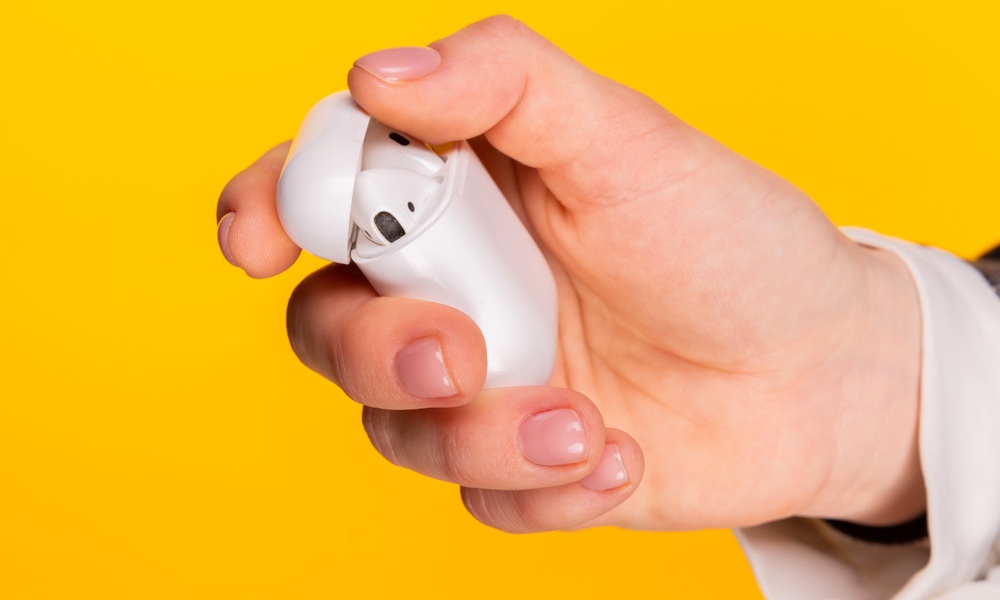Apple’s Ultra-Popular AirPods Are Losing Market Share to Chinese Rivals
 Credit: Burdun Iliya / Shutterstock
Credit: Burdun Iliya / Shutterstock
Toggle Dark Mode
There’s no doubt that Apple’s AirPods remain insanely popular, and in fact, by most estimations, they’ve pretty much defined the market for true wireless earbuds, but as the nascent market matures and new compelling rivals appear, Apple may be slowly losing its overwhelming lead.
When Apple launched its original first-generation AirPods back in late 2016, demand was so high that it couldn’t keep them on the shelves, and despite what many naysayers believed, this wasn’t just a passing fad either — not only did the fledgling AirPods make up 25 percent of all wireless headphone sales by early 2017, but they showed no sign of slowing down.
In fact, they continued dominating the market even two years later, and by the end of 2019 AirPods accounted for a staggering 71 percent of true wireless headphone revenue, with $6 billion worth of AirPods sold worldwide.
However, it looks like that huge dominance may be starting to come to an end.
According to Bloomberg, even though AirPods have become synonymous with true wireless earphones, a plethora of more affordable and viable alternatives have begun to appear over the past several months, many from Chinese rivals who have picked up the ball from Apple and begun running with it.
While the obvious high-profile products like Samsung’s Galaxy Buds are taking some of Apple’s AirPods mindshare away, the reality is that these actually only account for about 6 percent of the market, according to research cited by Bloomberg.
By contrast, China’s Xiaomi now has 10 percent of the market, but the bulk is actually now being taken up by a plethora of specialized Chinese brands, many of which have stepped up to offer some pretty competitive features and quality at much more affordable prices — a smattering of smaller companies that could soon collectively make up more than 50 percent of the true wireless earbuds market.
For example, Bloomberg cites the $90 Lypertek Tevi which supposedly offer better fit and sound quality, while 1More’s True Wireless ANC buds are said to outperform the AirPods Pro’s noise cancelling features at about a third of the price.
Then of course there’s Samsung’s new Galaxy Buds Live, which also feature ANC and a unique design for only $170. Samsung says it’s already shipped over 300,000 pairs of its new Buds Live since its launch earlier this month, although to be fair at least some of those include Buds that were bundled with the Galaxy Note 20.
Meanwhile Apple’s share of the pie has dropped down to around 35% in the midst of all of these other upcoming rivals, which is down from the greater than 50% market share that it held in 2019.
To be clear, however, Apple’s AirPods are still very much riding on top, but they’re not enjoying the commanding lead they once had, although this isn’t entirely surprising as more true wireless earbud makers manage to overcome the technical hurdles that have prevented them from matching Apple’s more advanced technology.
The fact is that like many products Apple introduces, AirPods were not the first true wireless earbuds on the market, but they were the first to become wildly popular thanks to some clever design choices, advanced Bluetooth engineering, tight integration with the iPhone, and of course the Apple branding.
All of those things were enough to vault Apple into a huge lead over rivals that relied on the more cumbersome Near-Field Magnetic Induction (NFMI) technologies, and many of these early true wireless earbud makers simply threw in the towel in the face of Apple’s AirPods juggernaut.
It’s Still a Big Playground
It’s also worth keeping in mind that AirPods generally only appeal to Apple device owners, since many of their advantages simply don’t apply on the Android side, not to mention the very idea of purchasing Apple-branded earphones is anathema to many Android users (which is why we don’t think Apple’s Beats brand is going to disappear anytime soon).
However, every analyst agrees that the market for true wireless earbuds is just getting started, and even last year the numbers revealed that Apple’s growing sales of second-generation AirPods and AirPods Pro were to those who were buying truly wireless earbuds for the first time, rather than upgrading from the first-gen version.
In fact, the true wireless category grew by 200 percent in 2019 alone, and it’s expected to continue growing at about the same rate for at least the next couple of years.
While Samsung is projected to more than double the sales of its Galaxy Buds this year, from 8 million to 17 million, Apple’s AirPods are still expected to see a jump from 61 million to 82 million. And while Samsung is poised to dominate much of the Android market, which Apple has basically ceded to other manufacturers anyway, with over 1 billion iPhones out there — a large portion of which are fully compatible with Apple’s latest AirPods features — there’s no doubt that Apple still has a large untapped market for potential AirPods customers right in its own backyard.






